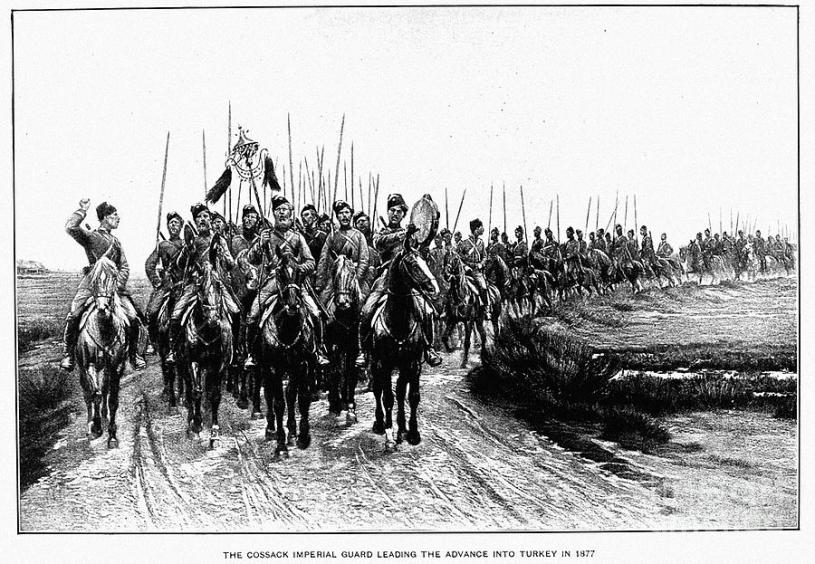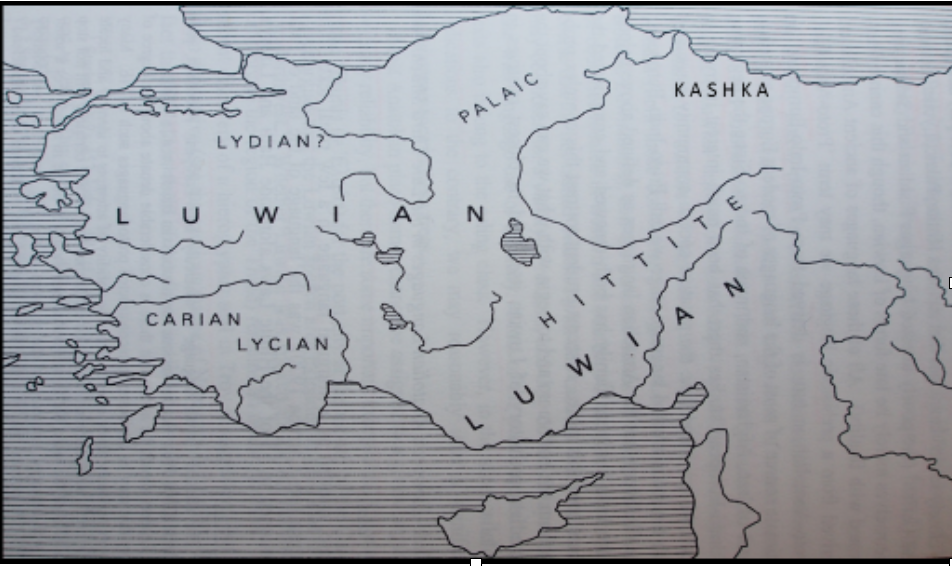//Ed. note: Young Ottoman officer İzzet Fuat makes it
accross to the forward Russian outposts but continuing
on to the main Russian HQS appears problematic -
and with a Turkish attack pending he's more than a bit
anxious.
İzzet Fuat was from the 'Keçecizade' family, the grandson
of a former Ottoman Prime Minister. After the ''93 Harbi',
as the Turkish-Russian War of 1877-78 is called by the
Turks, based on the year 1293 (1877) of the 'Rumi' calendar,
İzzet Fuat, found himself exiled to Aleppo in 1899, where
he wrote "Missed Opportunities" in French about the '93
Harbi. This story of his role as an envoy to the Russians
was an addendum to his book.//
 'Keçecizade' İzzet Fuat Paşa
'Keçecizade' İzzet Fuat Paşa
As we passed the forward outposts, we saw there was a small wooden
bridge over the steep-banked stream we had to cross. We entered into
a wooded area which was absolutely silent, frighteningly so. I ordered
the bugler, who at that point was 50 paces ahead of me, to blow his horn.
This was followed by the sight of a group of Cossack cavalrymen
heading toward us at full gallop.
Evidently, their lookout at a small outpost at the head of the bridge,
whom we hadn't noticed because of the trees, had alerted the cavalry to
our movements. The Cossack cavalry riders had concealed themselves
so well I had no clue they were there, calling to mind field mice that
appear and disappear in an instant.
 Russian Cossack cavalrymen.
Russian Cossack cavalrymen.
The spear-carriers were closing in on us. Yet another bad feeling!
Nevertheless, we didn't lose our nerve, although my face went pale. As
they neared us we could see that their intentions were not threatening,
though, and I signaled to a sergeant that I wanted to speak with one of
his officers. In a couple of minutes, we saw that an officer was riding
toward us at full speed.
He tied blindfolds tightly around mine and Hacı's eyes and we began
to move out. I'm not lying when I say that this high-speed march was
quite exhausting, with my horse's reins in the hands of one of the
Cossack cavalrymen. It wasn't just me who was uncomfortable. My
beloved horse 'Demir' was, as well, being stuck between the cavalryman
on my right and the officer on my left, who was riding very close to me.
Well-bred horses disdain such pressure and close contact.
Consequently, we couldn't proceed smoothly. The march was like a
ship rocking on the sea in harsh weather! Nevertheless, I moved as fast
as I could, knowing that time was of the essence based on my
commander's warning about his intended assault. I remembered, as
well, that if these fellows didn't send us ahead to their main command
forthwith I would have to find some way to return to our side.
 At this point of his story, İzzet Fuat was at Rushchuk and had
crossed to the west across 'no man's land' to the Russian side.
At this point of his story, İzzet Fuat was at Rushchuk and had
crossed to the west across 'no man's land' to the Russian side.
A bit later, we reached a large infantry outpost and were put into a nice
but small 4-cornered tent. Before long many, many young and older
officers came by to see us and most of them knew French. They were
quite curious to see Turkish officers. In one corner of the tent there
was an elegant, shining samovar, operating like a little locomotive. My
companion Hacı and I drank tasty Russian tea and I gorged myself on
delicious Russian cookies called 'pirog'.
As we finished our second glasses of tea, we heard the sound of swords
scraping the ground, signalling the approach of General Prohorov, who
entered our tent. After official greetings and introductions, the General
asked me for the written message that I'd said I had for him as the
commander of the forward outposts. I replied that this paper and my
other documents were in a leather pouch attached to my horse's saddle
gear. A youthful mistake! - rather than tying the pouch to my sword
belt, I'd attached it to my saddle!
 War truly is hell.
War truly is hell.
But those whom the General sent to fetch the saddle returned saying
there was no pouch to be found. Both the Russians and I were
dumbfounded. Immediately, I asked to see my saddle and they brought
it to me. There was no pouch. I was quite embarrassed, afraid of being
seen as either a spy or an incompetent and, consequently, subject to the
firing squad. The enraged expression on the General's face spoke
volumes and he even began to say some heated words.
Fortunately, God was looking out for this bewildered young envoy
and I found the presence of mind to say "Look! The hooks that linked
the pouch to the saddle are missing. While coming here, the rubbing of
the horses on either side of me must have caused the pouch to fall off."
They sent a fellow to search the path we came on and a bit later he
brought the pouch to the tent, allowing me to take a deep sigh of relief.
//END of PART II//





